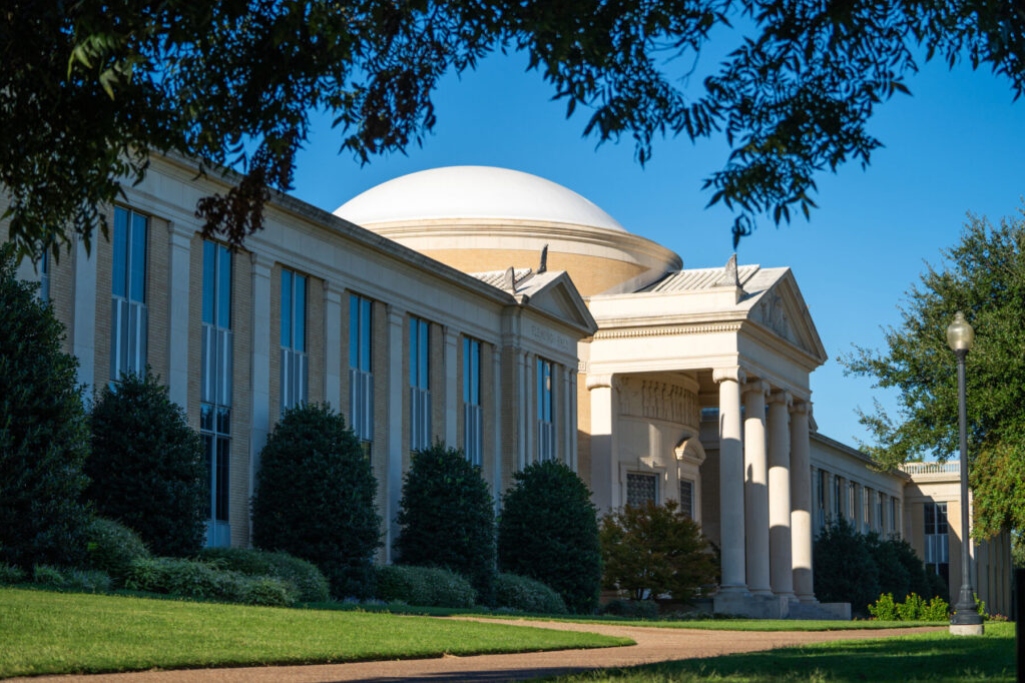
Architectural rendering of a proposed new campus of The Summit Church in Chatham County, N.C. The county’s Board of Commissioners denied The Summit’s rezoning request in December 2024.
GREENSBORO, N.C. — A federal judge denied the Chatham County Board of Commissioners’ motion to dismiss a lawsuit brought by The Summit Church and partially granted the church’s request for a preliminary injunction against the county’s decision to deny The Summit’s application to rezone approximately 50 acres of land for a new worship facility.
The ruling by Judge William L. Osteen came during a hearing held Monday, June 9, in U.S. Middle District Court that was further outlined by the judge in a 50-page memorandum opinion and order released Friday, June 20.
The Summit Church had sought a mandatory injunction that would have ordered Chatham County to approve the church’s rezoning request and associated site plan to construct a permanent facility for its nearby Chapel Hill campus that currently meets in a local high school.
Osteen denied The Summit’s request for a mandatory injunction, but he granted the church a prohibitory injunction that rendered the county’s decision to deny the rezoning request “of no force,” according to the written order.
“IT IS FURTHER ORDERED that Defendant Chatham County, North Carolina Board of Commissioners is hereby ENJOINED from denying Plaintiff’s rezoning proposal, pending further order of this court,” Osteen wrote. “IT IS FURTHER ORDERED that the County’s December 16, 2024, denial shall be of no force and effect pending further order of the court.”
Attorneys for The Summit Church filed a lawsuit against the Chatham County Board of Commissioners in February after the board voted unanimously at the Dec. 16, 2024, meeting to deny the church’s rezoning request to construct a permanent meeting site for its Chapel Hill campus.
The Summit Church is a multisite congregation that has 13 campuses across the Triangle region of North Carolina. The church’s goal is to have permanent locations for each of its campus locations, and church leaders say they are “running up … against capacity” and face other limitations at the current meeting location of the Chapel Hill campus at East Chapel Hill High School.
In the lawsuit, attorneys for The Summit claim the county’s decision to deny the rezoning request violated the church’s civil rights that are protected by the Religious Land Use and Institutionalized Persons Act (RLUIPA) of 2000. RLUIPA is a federal law that protects individuals and religious groups from discrimination in zoning and landmarking laws.
Specifically, The Summit’s lawsuit claims the county’s decision violates RLUIPA in four ways — by placing a “substantial burden” on the church’s religious exercise; by treating the church on “less than equal terms” with non-religious assemblies and institutions; by discriminating on the basis of religion; and by placing an “unreasonable limitation” on religious assemblies, institutions and structures.
In April, the U.S. Department of Justice (DOJ) filed a statement of interest in support of The Summit Church’s lawsuit. The DOJ’s filing came nearly a month after attorneys for Chatham County filed a motion to have the suit dismissed.
In his written order, Osteen said The Summit Church’s case has merit and can move forward.
“Plaintiff has demonstrated a likelihood of success on the merits of its substantial burden claim,” Osteen wrote.
In a footnote to that statement, Osteen added, “Additionally, it appears to this court that, for many of the same reasons that Plaintiff is likely to succeed on its substantial burden claim, Plaintiff’s equal terms and discrimination claims also have merit and this court reiterates the summary analysis it articulated at the conclusion of the June 9 hearing. However, the court, after review of the full record, finds the substantial burden claim sufficient to find a preliminary injunction is warranted and more appropriate for a memorandum opinion at this early stage of the proceedings.”


